To Be Safe, Don't Let Your Cat Lick Your Face!
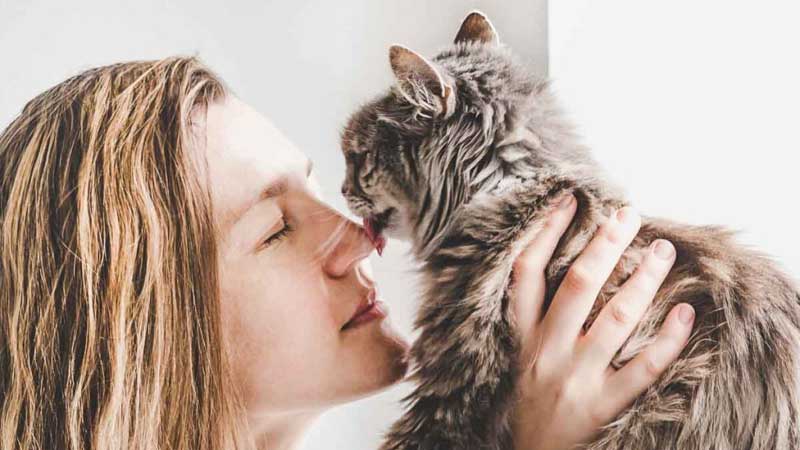
I'll admit it: I love my cat. He gives me a lot of joy. I love to watch him play with a sunbeam, or just chase .his tail around the room. I like staring into his sultry amber eyes. But my favorite times with my cat are when he snuggles next to me, purrs as loud as a diesel engine, and becomes my emotional support animal. He gives me unconditional love.
Sometimes, when my cat is lying next to me, he will lick my arm or hand. He sometimes even licks my face.
Cats are believed to have several reasons to lick their humans.
These include the cat's acceptance of you as part of their "family." Cats lick themselves to clean their fur, and they extend this action to their family members. If your cat has come to consider you a family member, he will include you in this practice. An extension of this would be to mark you with her scent; the cat may do this to leave her olfactory "mark" on your skin.
Another suggested reason is the cat's cry for attention. The cat may want you to do something for him – or even just want to play with you. On the other hand, their licking has also been thought to signal distress or anxiety.
If the cat is very young, the licking may be their version of a pacifier. If a kitten is taken from their mother too soon, it may need to satisfy its craving for oral gratification; and they choose to do so on your skin.
Why? your cat licking your mouth, nose, or eyes is not recommended.
Whether you enjoy the sensation of the cat's tongue or not: there has been some caution raised by the veterinary community about the safety of this practice: especially as it regards cats' licking the face. One concern is obvious: a normal part of a cat's grooming comes from licking their anus - and to have that cat's tongue go from there to someone's face might transfer traces of cat feces to a person's face. The most significant hazards come from the parasites and bacteria which are found in the cat's saliva. Cats' saliva contains organisms called "Pasteruella." When these are transmitted to humans, they can cause infections. Another dangerous organism is called "Bartonella henselae". This can cause cat scratch fever - even if the cat doesn't scratch you. Cat scratch fever is a potentially dangerous infection.
Another consideration can become a concern if the cat goes outside. Cats might eat or lick toxic substances - and could then transfer those substances onto you.
Safety is always a primary factor of self-care. As a responsible cat parent: make sure you keep your cat's medical exams up to date - and undertake any deworming protocol suggested by the vet. Be sure you dispose of his feces in a timely and sanitary way. If your cat allows it, you can clean his paws and face after he goes outside.
Conclusion
It is probably safest not to allow your cat to lick your face. But, if your cat does lick your face, you can minimize the risk of harm by the use of antibacterial soap and water on your face; after the cat has licked you.
References
- [1] ^ CDCgov: Bartonella henselae infection or cat scratch disease (CSD)
- [2] ^ Minnesota Dept. of Health: Cat Scratch Disease (Bartonella henselae)
You May Also Like
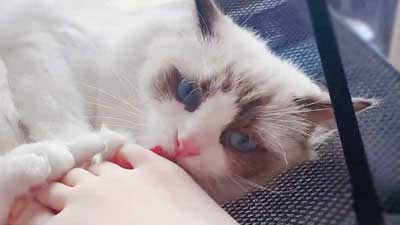 Cat BehaviorWhy Does My Cat Lick My Feet? (Territorial Marking?)
Cat BehaviorWhy Does My Cat Lick My Feet? (Territorial Marking?)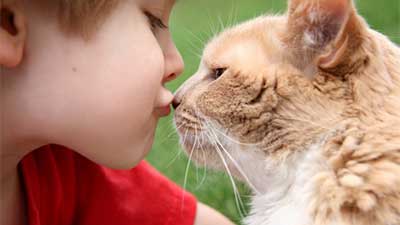 Cat BehaviorThe 6 Meanings of a Cat's "Nose Kiss", Do You Know?
Cat BehaviorThe 6 Meanings of a Cat's "Nose Kiss", Do You Know?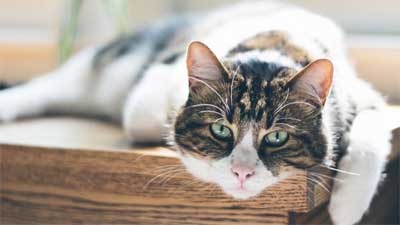 Cat HealthWhat You Need to Know About Cat Incontinence
Cat HealthWhat You Need to Know About Cat Incontinence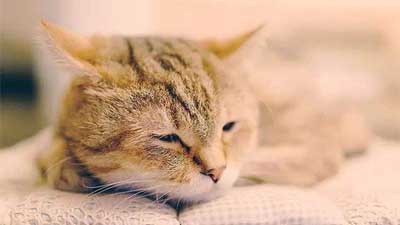 Cat HealthWhat Are The Symptoms Of Gastritis In Cats?
Cat HealthWhat Are The Symptoms Of Gastritis In Cats?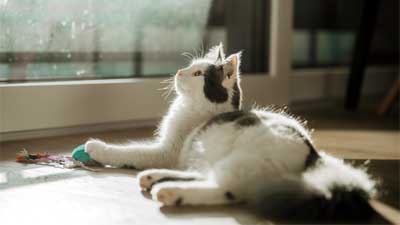 Cat HealthHow Are Indoor Cats Get Infected?
Cat HealthHow Are Indoor Cats Get Infected? Cat BehaviorCan Cats Sense Their Owner's Emotions?
Cat BehaviorCan Cats Sense Their Owner's Emotions?